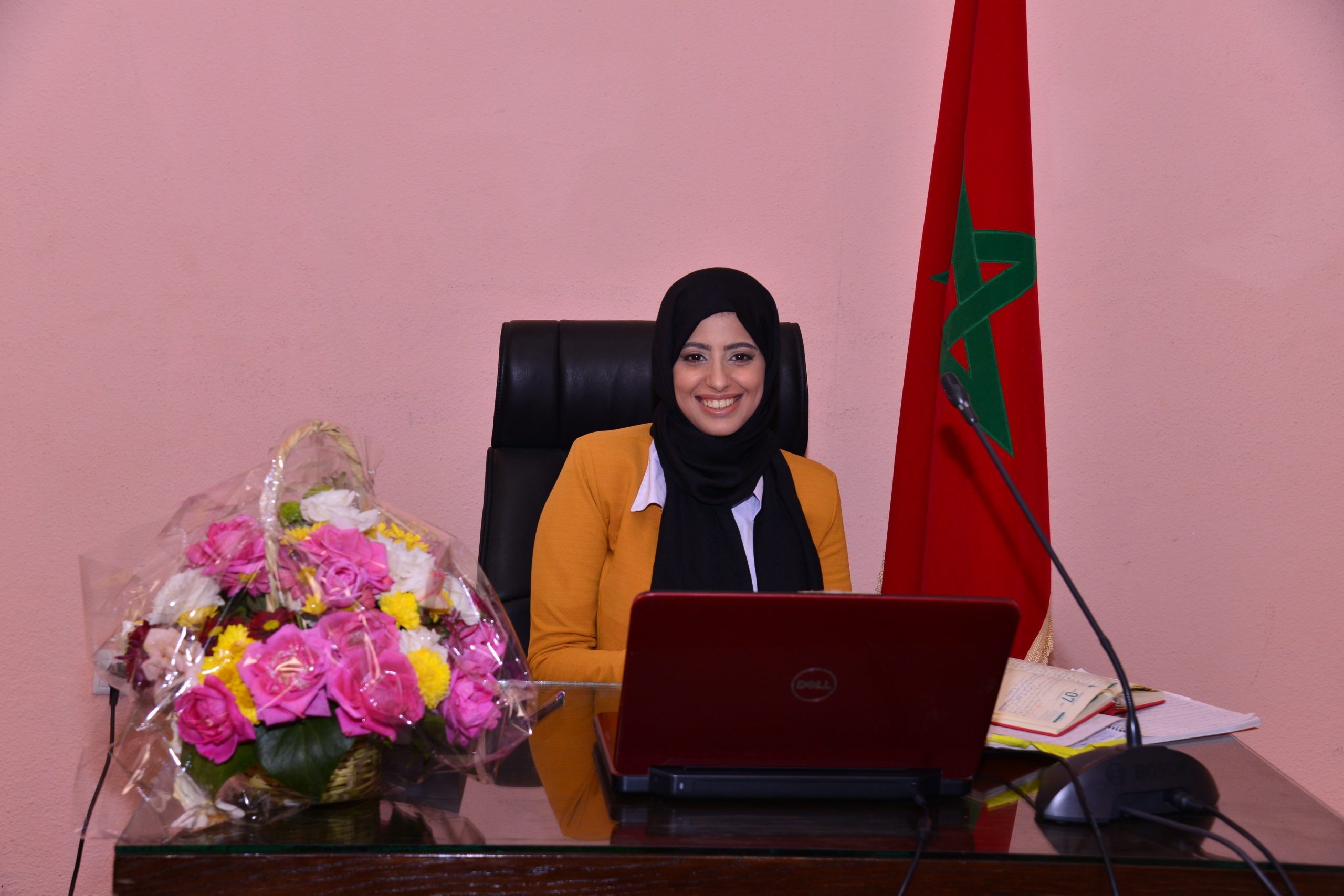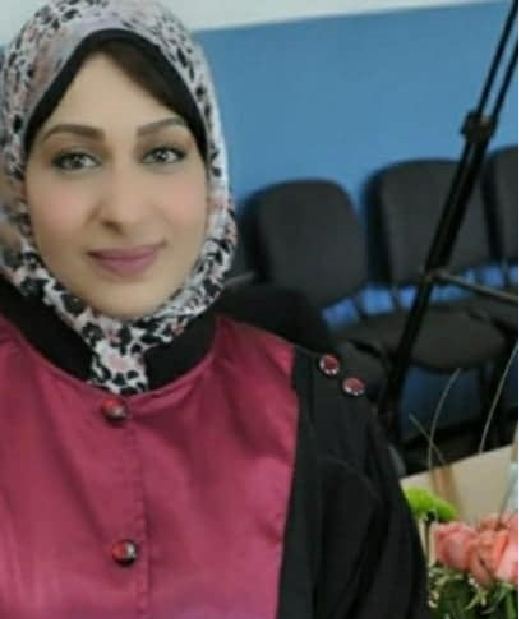Law 27.14, Morocco’s legal mechanisms to combat human trafficking

خولة يعكوبي،طالبة باحثة،ماستر الديناميات الجديدة لحقوق الانسان، كلية العلوم القانونية والاقتصادية والاجتماعية وجدة
Introduction:
The issue of combating human trafficking has received the attention of all countries, and many international and regional organizations. Considering that this crime is one of the most dangerous criminal phenomena at a global scale, and as an expression of modern slavery, it prompted the international community to unite its efforts to develop an international and a regional legal arsenal aimed at criminalizing transnational organized crime and to reduce its spread.
Morocco has become obligated to strengthen its criminal justice system and its penalcoderelative to combating national organized human traffickingcriminal groups. In line with thecurrent constitutional requirementsand international treaty obligationsespecially after Morocco’s ratification in 2009 to “the protocol of the International Convention for the Prevention of Transnational Crime relating to trafficking in human beings, especially women and children” the protocol entered into force in Morocco in 2011), Morocco enacted Law number 27.14 in regard to combating human traffickingadopted in 2016.
Morocco’s policy to combat human trafficking has not been limitedmerely to amending its criminal laws in order to track and punish perpetrators. Rather, it included a series of policies and strategies within the framework of international cooperation, with the United Nations and several other international and national NGOs.
Throughout this piece, we will be examining legislativeand regulatory provisions in law 27.14 concerning combating human trafficking.

- Human trafficking definition :
Beforefurther discussingvarious punitive mechanisms established by law№27.14, it is imperative to start with defining the term ¨human trafficking ¨.Based on chapter 448-1/ law 27.14 human trafficking defined as:the recruitment, solicitation,transportation, transferring , harboring, reception, or mediation in it ,by threatening or using force or various forms of coercion or kidnapping or fraud or deception or abuse of power or function or influence or exploitation of a situation of vulnerability or fragility, or by giving or receiving money or benefits or advantages to obtain approval of a person who has control on another person for the purpose of exploitation.”
This definition expanded the criminalization circle to include several acts and forms of this complex and multifaceted crime, while restricting the means of committing it, as toguarantee the most considerabledegree of protection to society and victims.
Within this framework, the term “Exploitation”includes: all forms of sexual exploitation, especially exploiting the prostitution of others and exploiting by pornography including means of connecting and informaticscommunication, also it includes the exploitation through forced labor or begging or practices similar to slavery or removing organs and removing or selling human tissue,or exploitation by conducting medical experiments and research on the living , or the exploitation of a person to carry out criminal acts or in armed conflicts.(chapter 448-1 paragraphs 3) .Through referring tothese three types of human trafficking: sex, labor, and organ trafficking,it is evident that the Moroccan legislator aligned with the requirements of the United Nations Protocol to Pre-vent, Suppress and Punish Trafficking in Persons (2000), known as “the Palermo Protocol”.
- Criminal penalties:
The criminal legislator considered the crime of human trafficking a felony, by identifying the initial sentence in prison between five to ten years and with a fine from 10.000 to 500.000 dirham(The same penalty applies to attempt human trafficking crime as stated in chapter 448-11).Moreover, due to the seriousness of this crime and the threat it poses to the security of the state and citizens, especiallyvulnerable groups at risk of exploitation including women, children and illegal immigrants.The criminal legislator can tighten penalties when conditions of aggravation are present, and in returnif mitigating excuses are available; the offender’s sentence may be exempted or reduced. Noting that the judge is bound to impose criminal fines in addition to jail time, and he cannot choose between them.
- Aggravating Factors:
Giving that human trafficking is one of the heinous crimes that disturb both internal and national security and fundamental human rights. The Moroccan criminal legislator hasidentified in law № 27.14 a set of cases on which the originalsentence is to be increased.
The initial penalty shall be increased, taking into consideration either the gravity of the offender’s personality, or what indicates his malice, or other aggravating factors relate to the circumstances of the offense itself, such as the use of a weapon or the severity of the injuries suffered by a victim.
- The penalty is raised to prison from ten to twenty years and a fine from 100,000 to 1,000,000 dirhams, according to Article448 – 3in the following cases:
- If the crime was committed by threatening to killor to harm or to torture or to detain or by defamatory ;
- If the perpetrator was carrying a visible or hidden weapon;
- If the perpetrator was a public official who used his position to commit the crime or facilitate its commission;(public official status is defined in chapter 224 of the Moroccan criminal code);
- If the victim sufferedwith a permanent disability or an incurable physical, psychological or mental illness by being exploited for the crime of human trafficking; (Chapter 402 of the Criminal Code determined standard to definelifelong disability)
- If the crime was committed by two or more principals or accessories or accomplices;
- If the perpetrator was habitual to the act;(recidivism )
- If the crime was committed against several people combined.
- The criminal legislator decided to double the original penalty; imprisoning from twenty to thirty years and a fine from 1,000,000 to 6,000,000 dirhams, if the crime was committed by a criminal gang or within a transnational framework, according to Chapter 448-5. This punishment can reach the maximum level to life imprisonment,in the case of committing the crime by torture or atrocities.
We note that although Chapter 293 of the Criminal Code defines a criminal gangas “every gang or agreement, regardless of its duration or the number of its shareholders, and this may be done or crimes committed against persons or funds..” , it omitted to provide a definition fortransnational crime; this may be due to the global complexity of this crime or to allow for a broader applicability of penalties against it, even the United Nations Convention on Transnational Organized Crime (UNTOC) does not contain a precise definition of ‘transnational organized crime’.
- Taking into account the personal circumstances of the victim (age, physical and mental state), as well as the character of the offender and his connection to the victim. Human trafficking is punishable by imprisonment for twenty to thirty years and a fine of 200,000 to 2,000,000, dirhams according to Chapter 448-4 ifs:
- the crime was committed against a minor under the age of eighteen;
- the crime was committed against a person suffering from a challenging situation because of his old age, illness, disability, physical or psychological deficiency, or against a pregnant woman, whether her pregnancy was apparent or known to the perpetrator;
- The perpetrator was the victim’s spouse, one of its descendants or a guardian, sponsor, or entrusted with its care, or has authority over it.
Chapter 448/14 stipulates that the judicial decision issued on the conviction must be published, suspended, or broadcast via audiovisual means of communication, In order to achieve general deterrence.
- Mitigating Factors:
In order to encourage the assistance of authorities, and to accelerate the rescue of victims and punishment of all criminals, the criminal legislator specified in Law 27.14 some legal excuses that will exempt or reduce the original punishment:
- Chapter 448-12 specified that exempted excuse may be granted if one of the perpetrators informed the authorities of what he knows about the crime according to exclusively cases determined by the legislator, in that the reporting is prior to the execution of the crime or attempted execution of it, or it was made possible to prevent its completion.
- The second paragraph of Chapter 448-12 specifies the legal excuses for mitigating the sentence, that is by notifying the authorities during the investigation, and the information giving enables them to capture the rest of the perpetrators, addition to that the reported crime should not result in the death or injury of the victim, permanent disability or terminal illness, or mental illness.
- The victim is also exempted from criminal or civil liability for any act performed under threat. If it was directly related to being a victim of human trafficking.(chapter 448-14)
- Exempting is also issued to failure to report known of human trafficking crime, if the person is the husband of the perpetrator or one of his descendants (chapter 448-7).
The criminal legislator did not exclude the‘‘legal person” from the circle of perpetrators, due to his critical role in facilitating the occurrence of this crime and/or organizing it with the necessary technical capabilitiesand funds. Sentencing a fine ranging between 1,000,000 and 10,000,000 dirhams, additionally the court shall order the dissolution of the legalaccording to chapter 448 -6.
Against this background, the legislator has not devoted special procedures toinstitutes public proceedings in human trafficking crime, it is subject to thesame rules to exercise the public right of action in felony crimes accrued within the Code of Criminal Procedure.
- the National Committee to coordinate measures to combat and prevent human trafficking:
Morocco is also a subject to an increase number in human trafficking crimes, as he has become a country of transit and settlement for regular and irregular migrants fromdifferent African countries. On top of that, legal or illegal mediation agencies have become widespread, as they constitute the main link in human trafficking operations with the aim of exploiting women and children for sexual purposes or forcing them into work in inhumane conditions such as restricted and controlled movement, retention of documents (passport), absence of vacation or rest days.
Against this background, a national Committee, under the authority of the Head of Government, to coordinatemeasures to combat and prevent human traffickinghas been created under article 6 of Law 27.14. This committee represents a coherent and integrated framework of members who are recognized for their expertise in combating human trafficking in particular and grave violations of human rights in general, representing magisterially and security sectors, national institutions and civil-society organizations, intended to find practical solutions to combat human trafficking in Morocco, as specified in Decree No. 2.17.740 issued in 2018 related to the composition of the commission and how it works.
Law No. 27.14 listed a set of specializations entrusted to the Commission, including:
- Submitting every proposal, it deems useful to the government in order to develop a general policy and a national plan of action to combat human trafficking, monitor its developments, prevent it and protect its victims, and track and evaluate its implementation, with the involvement of the relevant authorities;
- Suggesting all necessary measures to support projects of civil society associations to protect and assist victims of human trafficking;
- Developing or contributing to a database to collect data and information related to preventing and combating human trafficking;
- Propos to develop a guideline for combating human trafficking;
- Proposing studies and research in the field of combating human trafficking and submitting them to the public authorities.
The establishment of this national committeecould be considered as a breakthrough in Morocco’s fight against this complex criminal phenomenal, seeing that it can solvethe lack of reliable data on the nature and scope of human trafficking in Morocco asit become a concern for scholars and public administrates alike.
- Victims strategy:
Through Law 27.14, the criminal legislator took special and necessary care for victims of human trafficking , in the act of setting a broader and more inclusive definition, and through the state’s provision of protection, health care, and psychosocial support these victims , along with arranging temporary housing, and providing the necessary legal assistance to them, facilitating their ways to integrate into social life, and facilitating their voluntary return to their country of origin or country of residence depending on the situation if they are foreigners, within the limits of the available means, as specified in Article 4 .
Additionally, the legislator decided to exempt victims of human trafficking crime from the judicial fees related to the civil lawsuit they file to claim compensation for the damage resulting from this crime. The victims or those with their rights benefit from legal aid by law in every case, including appeal (Article 5).
Conclusion:
The phenomenon of human trafficking remain a complex one; as it lies behind many political, economic, social and cultural reasons, both in poor countries that are the primary source of the supply side for trafficking victims, or in rich countries that represent the main source of demand for these victims.
In the light of the foregoing, the Moroccan penal code is constantly challenged by highly sophisticated international organized criminals and groups, which exploits either Moroccan citizen or foreigners into human trafficking, this is supported by Ministry of Justice and Freedom’s 2015 report “Trafficking in women and children in Morocco” in collaboration with UN Women and the Swiss Confederation.Another dilemma of enforcing anti-trafficking laws is the lack of training for the local enforcement officers, Even if the anti-trafficking law has implemented, it is not likely that the local police officers are well-versed in international or domestic laws in regards to human trafficking.
It is reasonable to say, in order to reduce the incidence of potential victims and to deterrence and combat this type of truncation organized crime, is not merely limited to imposing criminal penalties, but requires as well taking preventive measures to eliminate the root causes of the problem and by reducing all forms of social and economic fragility , and spreading general awareness.
On a final note, after viewingLaw №27.14 related to combating human trafficking, and identifying Morocco‘s status in regards to this criminal phenomenal, we insist on the effectiveness of enforcingcriminal laws in regards to human trafficking,when it is incorporated into general, public and sectorial policies, and must importantly when citizens, institutional actors, and civil society are involved in the developing process.Pending the National Committee to coordinate measures to combat and prevent human trafficking’s reports and its more accurate assessment of the situation, Morocco should work industriously to implement the preventive and compulsory clauses of the current laws.






